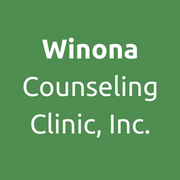5 Tips for Approaching a Loved One About Addiction

When you’re concerned about a loved one and their use of drugs or alcohol, it’s natural to want to assist them. But addiction therapy can be a sensitive subject for someone who isn't ready to seek help. When suggesting this option to a loved one, try using the following tips to guide the conversation.
How to Talk to a Loved One About Addiction Therapy
1. Have Realistic Expectations
Before starting this conversation, you need to recognize that you can't control the outcome. You don't have the power to overcome their addiction for them or to force them to do anything. They have to want to recover—and reaching that stage may take time and multiple conversations.
2. Prepare for the Discussion
When you speak to your loved one, you don't want to be vague. They’re less likely to act on the discussion if they don’t know where to start. Instead, look into addiction therapy counselors and providers beforehand so you can answer any questions they have.
3. Have the Discussion One on One
 Discussing addiction might be difficult or even embarrassing for your loved one. They may feel upset, defensive, or angry when talking about it. To avoid a negative reaction, raise the subject in private first.
Discussing addiction might be difficult or even embarrassing for your loved one. They may feel upset, defensive, or angry when talking about it. To avoid a negative reaction, raise the subject in private first.
4. Be Part of the Solution
While you can't recover for your loved one, you can offer them help and support during recovery. Offer them transportation to counseling and other appointments. You can also assist them with finding needed resources either for their recovery or in other areas of their life.
5. Practice Self-Care
While you're offering support, you have to take care of yourself too. You still need to protect both your own emotional health and your physical assets. Be supportive but firm about your boundaries.
When looking for addiction therapy providers, choose Winona Counseling Clinic. Serving the areas in and around Winona, MN, their compassionate and well-trained counselors have provided guidance and resources to patients since 1987. They tailor their approach to each individual's mental health needs and challenges. To schedule an assessment, call (507) 454-3900 or visit their website.
About the Business
Have a question? Ask the experts!
Send your question

